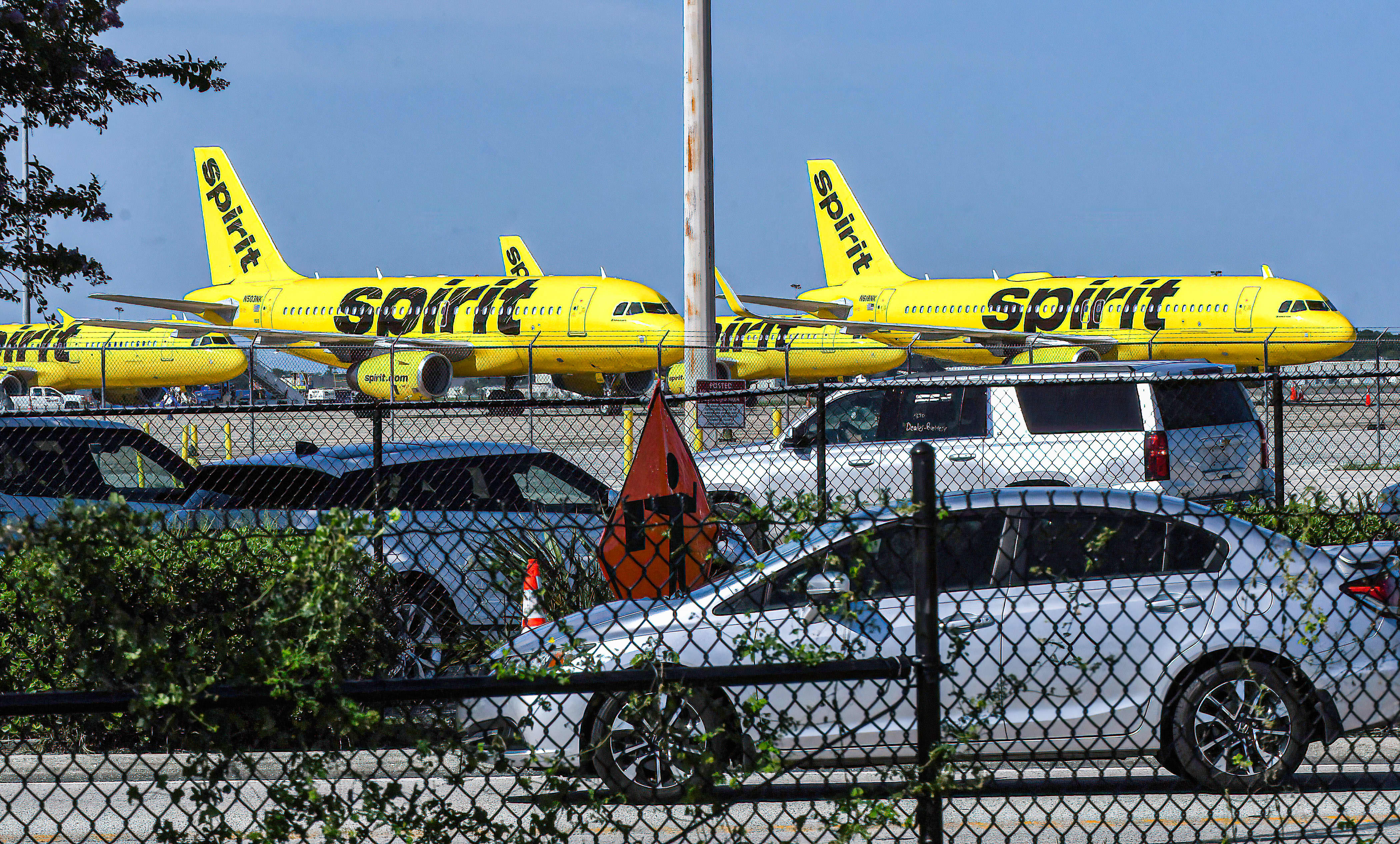Frontier Airlines and Spirit Airlines, the two largest low-cost carriers in the U.S. have agreed to merge, creating what would become the fifth largest airline in the country. The boards of both companies approved the deal over the weekend, prior to the CEOs of both airlines announcing the agreement in New York City.
The deal, valued at $6.6 billion, is structured with Frontier Airlines controlling 51.5% of the merged airline while Spirit will hold the remaining 48.5%. Spirit investors will receive 1.9126 shares of Frontier plus $2.13 in cash for each Spirit share they own. The companies say the deal implies a value of $25.83 per Spirit share, which would be a 19% premium over the value of Spirit shares at the end of last week.
Still to be determined is the name of the combined carrier, who will be CEO, and the location of the airline’s headquarters. The chair of the new airline will be Bill Franke who is the current chair of Frontier and managing partner of its parent company Indigo Partners. In a release announcing the agreement, Franke said the combined carrier “will create America’s most competitive ultra-low fare airline for the benefit of consumers.”
For Franke, the deal is the latest in a career of making investments in and overseeing low-fare airlines around the world, including Spirit. From 2006 through 2013, Indigo Partners held a stake in Spirit with Franke serving as chair of the airline before he resigned when Indigo sold its position in the carrier. Shortly after that move, Indigo bought Frontier Airlines from Republic Airways for $145 million.
Since that acquisition, Denver-based Frontier has steadily expanded its route network with new destinations and additional flights, often targeting cities where larger airlines like Southwest have a strong presence. In almost every case, Frontier enters with low fares to gain a foothold with travelers seeking lower-cost tickets.
Spirit, based in Miramar, Florida, has also been aggressively expanding in the last decade and plans to continue that strategy once combined with Frontier. “This transaction is centered around creating an aggressive ultra-low fare competitor to serve our guests even better,” said Spirit CEO Ted Christie in a statement about the agreement.
In 2013 Spirit and Frontier had 2.8% of the revenue passenger miles flown by U.S. airlines according to the Department of Transportation. By 2019, their combined market share had almost doubled to 5.4% while the four largest airlines in the U.S., American Airlines, Delta, United and Southwest, controlled 73.9% of revenue passenger miles
With both carriers flying only Airbus planes and neither dominating one particular market, a Spirit/Frontier merger makes sense on paper. Still, the Biden administration has made it clear to corporate America it will scrutinize potential mergers far more aggressively than the Trump administration. The carriers expect the deal to close in the second half of this year.
CNBC’s Meghan Reeder contributed to this article
